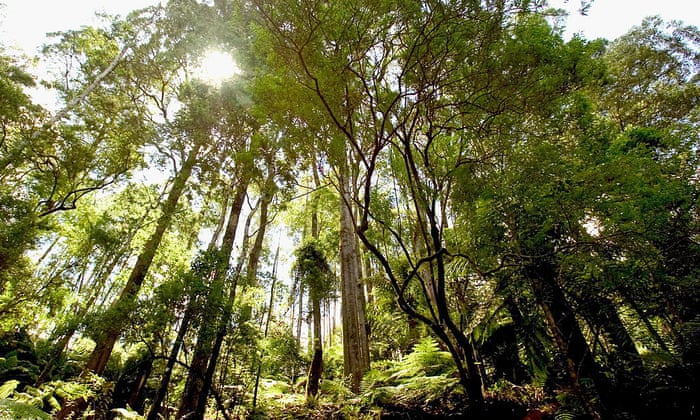As of January 1st, the Western Australian government has ceased commercial logging in native forests, reflecting a commitment to conservation and sustainable forestry practices. This decision aligns with global efforts to address deforestation and climate change, setting an example for other regions. The government’s strategic approach, including a Native Forest Transition Plan and investments in softwood pine plantations, emphasizes a proactive shift towards responsible land management and economic resilience.

As of January 1st, the Western Australian government has effectively halted commercial logging activities in native forests spanning regions such as the southwest, Great Southern, and Peel. This significant move reflects a commitment to conservation and sustainable forestry practices, aiming to preserve the unique biodiversity and ecological balance of these areas.
By discontinuing commercial logging, the government signals a recognition of the environmental importance of these native forests and the need to protect them for future generations.
This decision aligns with growing global concerns about deforestation, habitat loss, and climate change. By curbing commercial logging, the Western Australian government takes a proactive step towards mitigating these challenges, contributing to the broader global efforts to promote responsible and sustainable forestry practices.
This move not only safeguards the natural beauty and ecological richness of the affected regions but also sets an example for other regions and nations to prioritize the preservation of native forests for the well-being of the planet.
The recent decision to cease commercial logging in native forests across Western Australia, encompassing areas like the southwest, Great Southern, and Peel, is a fulfillment of the government’s commitment made in September 2021. This commitment pledged to conclude all logging operations by the year 2024, safeguarding approximately 400,000 hectares of native forests, including the valuable karri, jarrah, and wandoo species, from commercial exploitation.
The move underscores the government’s dedication to its promise of environmental conservation and sustainable land management, acknowledging the ecological significance of these forests and the imperative to shield them from commercial activities.
By taking this step, the Western Australian government not only adheres to its stated timeline for ending logging operations but also demonstrates a forward-looking approach to environmental stewardship.
The protection of these native forests aligns with broader global initiatives to address biodiversity loss and combat the adverse effects of climate change.
This commitment sets a positive precedent for responsible land use and underscores the importance of prioritizing the preservation of vital ecosystems for the benefit of both current and future generations.
Under the new Forest Management Plan, the Western Australian government introduces a strategic approach to the use of native timber. While commercial logging in native forests has been halted, the plan permits the extraction of native timber through ecological thinning, aimed at enhancing forest health and bolstering resilience against factors such as droughts and wildfires.
This method involves selectively removing certain trees to promote the overall well-being of the forest ecosystem. Additionally, the plan allows for the extraction of native timber through mine site operations, indicating a careful consideration of alternative avenues for resource utilization that minimize environmental impact.
The emphasis on ecological thinning aligns with contemporary forest management practices that prioritize sustainability and ecosystem health. By incorporating these measures, the Forest Management Plan seeks to strike a balance between conserving native forests and responsibly utilizing timber resources when necessary.
This approach reflects a commitment to adaptive and science-based land management, acknowledging the importance of maintaining the ecological integrity of Western Australia’s forests while addressing the multifaceted challenges posed by environmental factors like droughts and wildfires.
To facilitate the transition from large-scale logging, the Western Australian government has earmarked $80 million (AUD) for a Native Forest Transition Plan. This comprehensive plan, spearheaded by the Minister for Forestry, is designed to support the transformation of the timber industry.
Under this initiative, eligible sawmills will receive substantial payments to facilitate their restructuring processes. The financial allocation aims to assist these entities in adapting to the cessation of large-scale logging activities in native forests, fostering a smoother transition toward more sustainable and environmentally friendly practices.
The Native Forest Transition Plan exemplifies the government’s commitment to providing tangible support for the affected sectors during this shift in forestry practices. By offering financial incentives for restructuring, the government acknowledges the economic impact on sawmills and emphasizes the importance of a just and well-managed transition.

This strategic investment reinforces the government’s dedication to both environmental conservation and the welfare of the timber industry, signaling a proactive approach to addressing the challenges associated with the transformation of logging practices.
In addition to the financial support allocated for the Native Forest Transition Plan, the Western Australian government has earmarked additional funds for various purposes linked to the cessation of large-scale commercial logging.
These funds extend to community projects, business diversification, and initiatives aimed at attracting new industries to the affected regions. This multifaceted approach recognizes the broader impact of ending large-scale logging activities and seeks to mitigate potential economic and social challenges associated with the transition.
The allocation of funds for community projects signifies a commitment to the well-being of local residents and the sustained development of communities that have historically relied on the timber industry.
Furthermore, supporting business diversification and attracting new industries aligns with the government’s vision for fostering economic resilience and diversity in regions affected by the change in forestry practices.
By addressing both the immediate needs of communities and fostering long-term economic sustainability, these additional funds contribute to the comprehensive strategy of transitioning away from large-scale commercial logging while promoting the overall prosperity of the impacted areas.
As part of its strategic investments, the Western Australian government is committing $350 million to the development of softwood pine plantations.
Recognizing the critical role of softwood pine in housing construction and its significance in bolstering the sustainability of the region’s timber industry, this substantial financial allocation underscores a forward-looking approach to resource management.
The investment is aimed at expanding and optimizing softwood pine plantations, which are essential for meeting demand in the construction sector while simultaneously supporting the long-term viability of the timber industry in the region.
By injecting substantial funds into softwood pine plantations, the government signals a commitment to both economic growth and environmental sustainability. Softwood pine, with its versatile applications in construction, plays a pivotal role in meeting housing needs and fostering a robust timber industry.
This investment aligns with the broader goal of transitioning towards more sustainable forestry practices, ensuring a resilient and thriving timber sector that meets the evolving demands of the construction industry while safeguarding the ecological balance of the region.
Source: Timber Exchange




